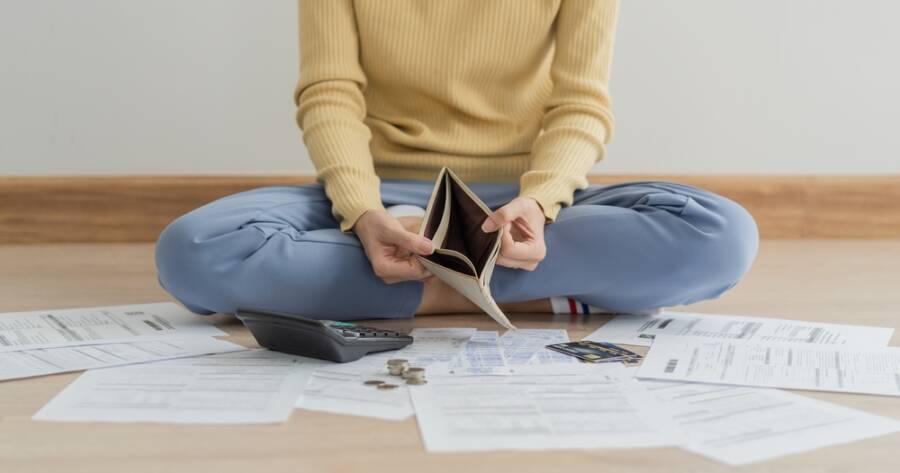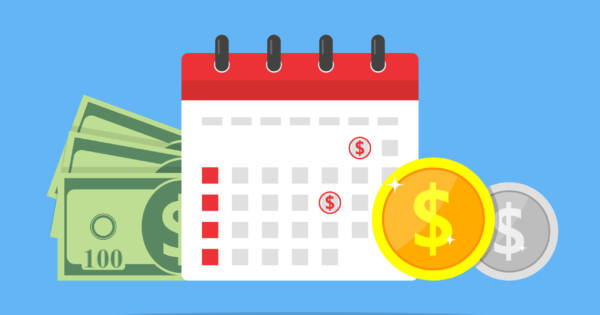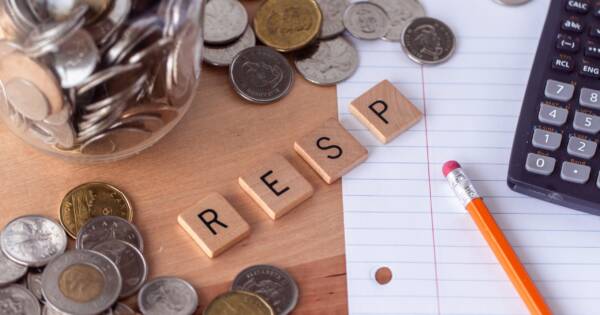If you’re living paycheck to paycheck, you’re far from alone. People across many income levels can fall into such a cycle, often leading to financial stress when unexpected expenses arise. Spending an entire paycheck each pay period leaves little room for emergencies or long-term planning. The good news is that financial stability is achievable. Understanding the habits that contribute to the pattern, along with practical steps for change, can help you break the cycle and build lasting security.
Only Paying the Minimum on Debts
When money is tight, it might be tempting to free up cash by only paying the minimum amount due on your debts. But resist that urge. Whether it’s credit card or student loan debt, only paying the minimum can lead to paying a ton of money in interest.
“For example,” GOBankingRates says, “paying the minimum 2 percent on a [credit card] bill of $5,000 could cost you thousands of dollars in interest and take you more than 30 years to pay off at an assumed 18.00% APR.” That’s a surefire way to stay in debt.
Too Many Subscriptions and Memberships
Have you added up how much you spend on subscriptions recently? According to CNBC, consumers underestimate how much they spend on subscriptions each month by a whopping $133. It’s easy to do when you think, “What’s another $10 or $15?” every time you sign up for a new subscription. CNET says 50% of consumers subscribe to at least four streaming services. That adds up, especially if you don’t use some of them very much.
And streaming services aren’t the only things to evaluate. Gym memberships, for example, are another monthly expense that could be wasting your hard-earned money. USA Today says the average gym membership costs about $60 a month, and nearly 70% of gym memberships don’t get used.
A “Keeping Up With the Joneses” Mentality
Sometimes it feels like everyone around you is living extravagantly. There’s your friend with a serious fine dining habit, your neighbor who just bought a new sports car, your sibling who recently upgraded to a mini-mansion — well, you get the picture. All of that can push you to live beyond your means.
If your living expenses are too high, then getting out of the paycheck-to-paycheck cycle isn’t likely. That’s why ditching the “keeping up with the Joneses” mentality is key. Instead, review how much you spend and look for areas to rein in your expenses. It might be hard at first, but it can make a big difference.
No Surprise or Emergency Fund
A recent survey from Bankrate highlights how common insufficient emergency savings are among Americans. Many households report having only a modest savings cushion — or none at all — which leaves them vulnerable when unexpected expenses arise. Without a financial buffer, even a single unplanned cost can force people to rely on high-interest credit cards or payday loans. Building an emergency savings fund — even a small one — helps absorb shocks and reduces reliance on expensive debt, making it a key step toward financial stability.
Failing To Pay Your Bills on Time
Not paying bills on time is also a reason people live paycheck to paycheck. For one thing, paying bills past the due date results in late fees that add up. And for another thing, it can ding your credit score.
A low credit score can lead to higher interest rates in the future, making things like car loans and mortgages more expensive. Stay on top of your bills and set up autopay if it’s just too difficult.
Break the Cycle of Living Paycheck to Paycheck
When you’re trapped on the paycheck-to-paycheck cycle, it can seem impossible to break free. However, try not to get discouraged. Taking control of your finances is a process, so start with a few concrete measures.
Let’s take a look at a few steps you can take today to shore up your finances and stop living paycheck to paycheck. You’ve got to start somewhere, and your future self will thank you for putting in the work.
Make a Budget and Spend Less Money
First things first, make a realistic budget you can follow. That means all your necessary living expenses are built-in, plus you have some wiggle room. Consider breaking your monthly budget into categories: groceries, beauty, entertainment, etc.
Once you’ve spent all of the money you designated for a particular category, that’s it. You refuse to buy anything else from that category for the rest of the month. Challenge yourself to incrementally cut back your budget to save even more money.
Get Out of Debt and Stop Taking On More
Credit cards can be a major contributor to snowballing debt. As a result, it can help to stop paying for things with credit cards until you’re out of debt. Instead, pay with cash whenever possible. Paying with cash even has an added advantage — people typically spend less.
According to a ValuePenguin Credit Card Spending Report, “people are willing to spend more — as much as 83% in some cases — when paying with a credit card instead of cash.” Additionally, try to avoid taking on debt like a new car loan until you’ve taken care of your debt.
Create an Automatic Savings Account
If you’re not in the habit of saving money, then consider arranging for a portion of your paycheck to automatically deposit into a savings account. “In addition to boosting your savings,” Investopedia notes, “an automatic savings plan can help you with budgeting and with managing spending habits.”
After all, you’re less likely to overspend and more likely to build your savings if the money isn’t sitting in your checking account for too long. When you’re just starting to break the paycheck-to-paycheck cycle, it’s OK to start small with your automatic savings. Try to increase how much you save over time.
The Bottom Line
While you can get by living paycheck to paycheck, it tends to catch up with people. Eventually, an unexpected expense like a medical emergency or a home repair is bound to pop up. If you don’t have any savings, then that can be financially devastating.
Of course, breaking the paycheck-to-paycheck cycle is easier said than done. Start with a few concrete measures and have patience. Keep in mind that improving your financial situation is a long-term process, so try not to get frustrated early in the process.








